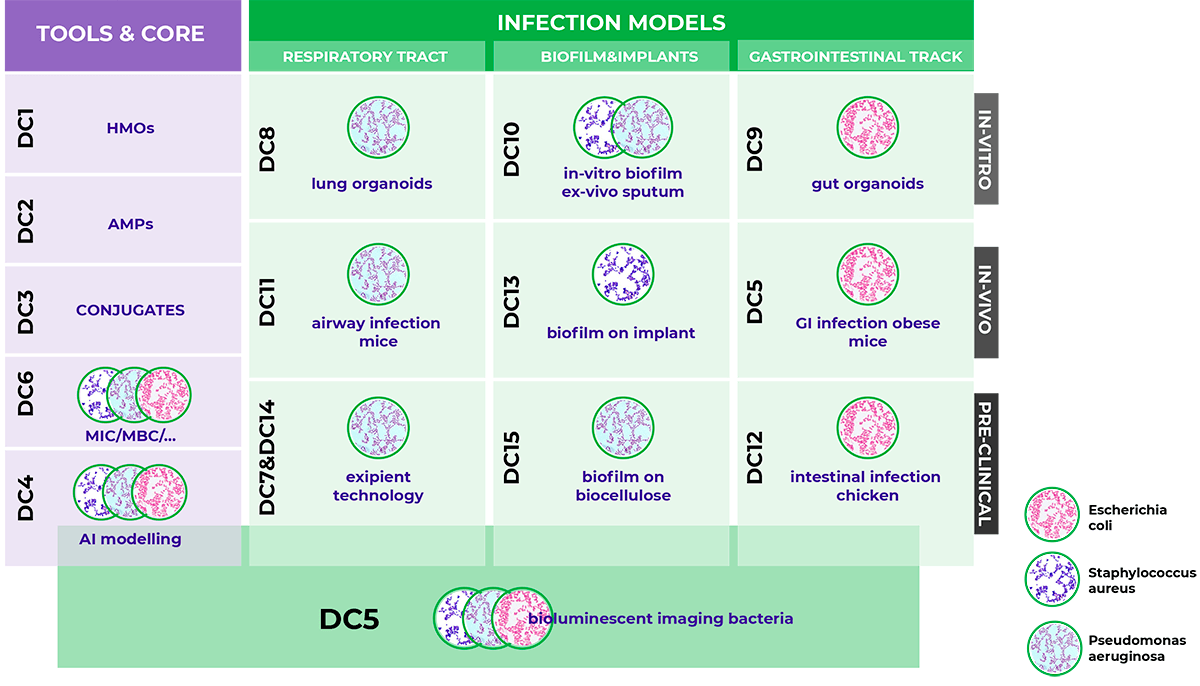About SSBB
STOP SPREAD BAD BUGS is a new multi-disciplinary research/training consortium built to combat the alarming problem of global antimicrobial resistance. Multi-drug resistance (MDR) in bacteria is becoming increasingly common thus urgently calling for alternative approaches to develop and implement novel antibiotics. We envision a definitive solution that will require a paradigm shift. Its foundation shall be the training of a new generation of future 15 Doctoral Candidates (DCs) by world-renowned experts in the field of drug development, infectiology, immunology and pharmacology.
A unique state-of the-art teaching/training pipeline shall be developed across 7 academic and 7 SME partners with complementary expertise in the development and testing of novel approaches to antimicrobial therapy in humans. We shall establish knowledge and expertise on carbohydrate and protein chemistry for the discovery of new drug candidates, while characterizing the underlying mechanism of existing compounds for treatment of microbial infections. Computational modelling shall optimize the interactions of the novel entities with selected pathogens. A range of infection models allows partners to simultaneously determine compound efficacy in pre-clinical settings and investigate the potential effects of the novel antimicrobials on host tissues. State-of-the-art imaging tools will be applied to track the bacteria and novel compounds in these test systems. Uniquely, the pipeline will also determine the pharmacokinetics, and the effects of compounds on host microbiota and host immunity.
Understanding the mechanisms of action of the novel antimicrobials shall provide insights into new antimicrobial mechanisms, which may be further exploited in spin-off projects. This approach means that the STOP SPREAD BAD BUGS consortium will deliver uniquely trained, multi- and interdisciplinary DCs that will take the continuing fight against global MDR safely into the future.
Impact
In the STOP SPREAD BAD BUGS project state-of the-art teaching and training will be provided in order to help the next generation of DCs understand, design and develop strategies and compounds for effective treatments of multidrug resistant bacteria for use in global societies. The knowledge and tools to be obtained by the DCs will allow them to continue the development and testing of current and future novel, long-term, antimicrobial strategies throughout their whole careers, helping save lives and ultimately reducing healthcare costs.
Project overview


